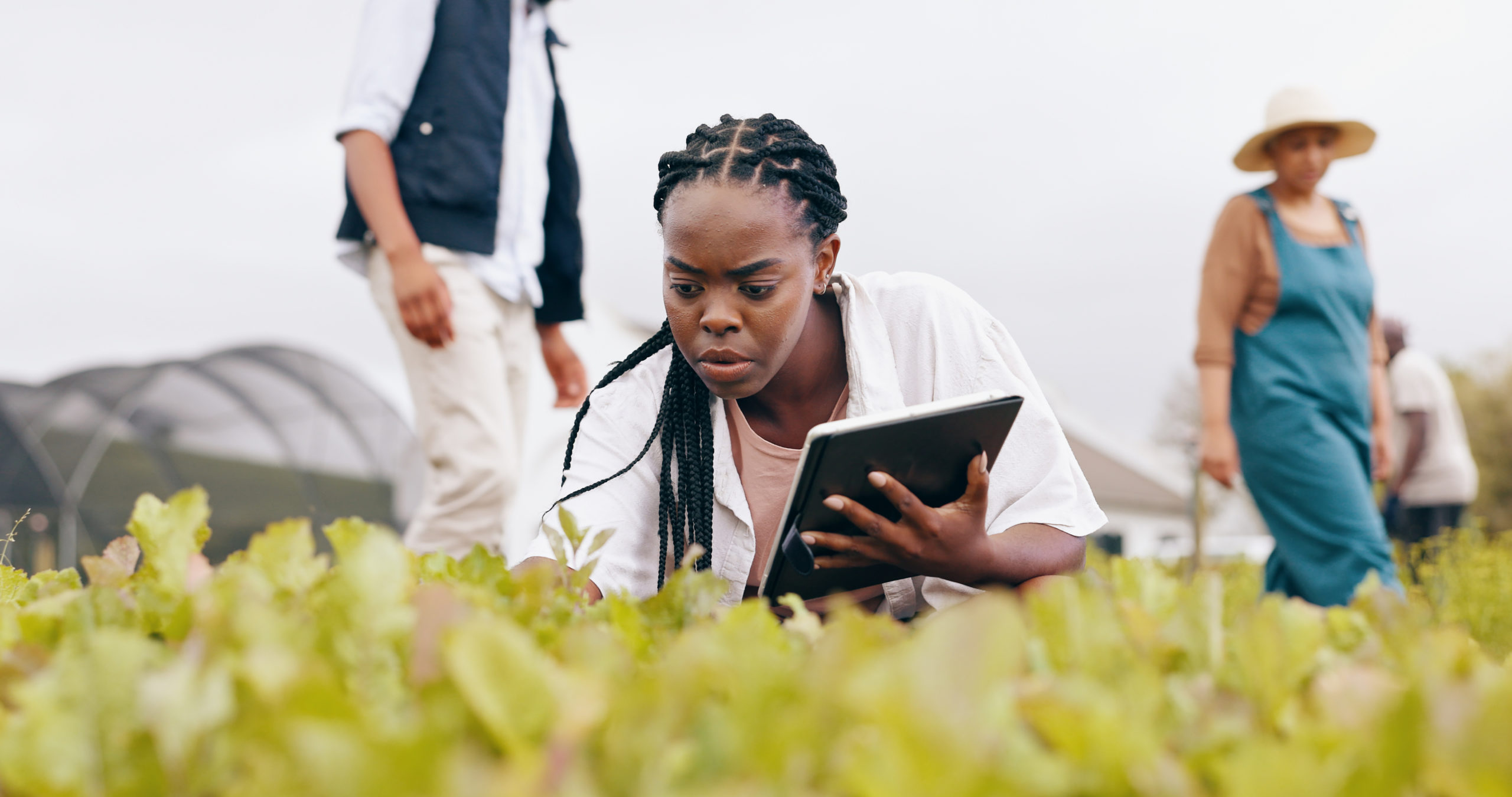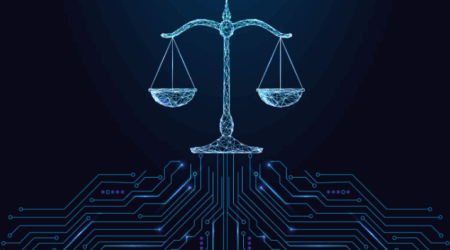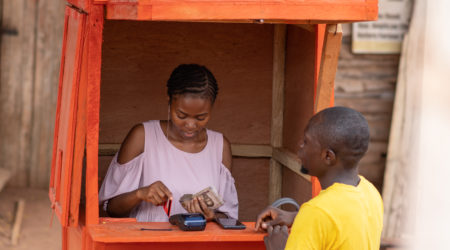It’s still all about the people

Artificial intelligence has become the defining technology of our time. Governments are racing to regulate it, investors are reshaping portfolios around it, and development organizations are scrambling to understand what it means for inclusion. For those of us who have spent years helping people navigate economic change, this moment feels both familiar and urgent.
At BFA Global, we’ve seen waves of technological optimism before – from mobile money to digital identity to embedded finance. Each time, progress depended less on the technology itself and more on the intent, design, and empathy behind it. AI is no different. It will be as inclusive – or as exclusionary – as we make it. And for us, the core remains unchanged: it’s still all about the people.
For nearly two decades, we have helped low-income households, micro-entrepreneurs, and small businesses build resilience and income. Whether through research, advisory work, or venture building, our focus has always been on connecting innovation with the lived realities of underserved communities. As AI reshapes economies, our mission is to make sure it reshapes opportunity as well.
We are backing AI pioneers already
BFA Global’s venture-building practice is evolving to prepare for a more AI-driven future. We’re helping founders and teams design solutions that integrate intelligence responsibly from the outset.
Across our venture building work for the Catalyst Fund, as well as with incubators and accelerators such as Jobtech Alliance, TECA, ClimaFii Alliance and other programs, we’ve supported more than 200 startups across emerging markets working at the intersection of digital finance, climate resilience, and livelihoods. Many are already finding practical, responsible ways to use AI for their solutions. For example, Mazao Hub in Tanzania leverages AI and soil-testing kits to deliver precise, climate-smart agronomy advice to farmers, coupled with access to inputs and markets, to help them boost yields. VAIS, in Egypt, built a proprietary AI model to analyze satellite and soil data, reducing water use on farms. In South Africa, The Awareness Company built an AI solution to automate high-quality sustainability insights to corporates across energy, water, building and agriculture sectors.
Each of these companies reminds us that AI is most powerful when it learns from people, not just about them, and augments existing capabilities. The goal is not to automate away human judgment, but to deepen understanding – helping markets respond to people’s needs with greater speed, accuracy, and fairness.
Building ventures for an AI world
Our approach is to strengthen ventures that are commercially viable and socially grounded. That means embedding safeguards for data privacy, bias detection, and transparency early in product development. It also means focusing on use-cases where AI amplifies human capacity: giving loan officers sharper insights, helping farmers make informed decisions, or enabling small enterprises to forecast demand and manage cash flow.
But experience tells us that technology adoption is rarely about the tech alone. It succeeds when it combines digital efficiency with human connection – the right balance of tech and touch. Whether it’s a field officer guiding a client through an AI-informed lending tool like Annapurna Finance does in India, a cooperative leader interpreting predictive crop data for her community, like at Fundacion Genesis’ Climatica platform in Guatemala, or a mentor helping a startup founder test responsible AI models, adoption happens when trust bridges the algorithm.
AI will reshape business models and market structures, but value chains, especially in emerging markets, still start and end with people. Our venture work is designed to keep that human anchor in place while exploring how AI can extend reach and resilience.
Upskilling for an AI economy
The rise of AI is also transforming how people work, learn, and earn. Through the Jobtech Alliance, BFA and Mercy Corps are studying how digital platforms can expand access to dignified work and entrepreneurship. The challenge is that new tools often outpace the skills people need to use them. For example, through its investment in BAG and Learn.ink, the Jobtech Alliance is showing how AI can make learning more practical and accessible. These platforms deliver short, adaptive lessons within daily workflows, helping workers build the digital skills they need to keep pace as new tools emerge.
We’re now exploring how to integrate AI literacy and applied digital skills into jobtech ecosystems – so that workers, especially youth and informal entrepreneurs, can use AI to increase productivity and income. Whether it’s a micro-enterprise learning to market products with AI-driven tools or a platform worker leveraging automation to manage tasks more efficiently, the opportunity is to make technology serve human creativity, not replace it.
In an economy where algorithms will increasingly shape opportunity, the ability to learn, adapt, and co-create with technology becomes the most critical skill of all.
AI for financial institutions
AI also holds enormous promise for the financial institutions that anchor inclusion across emerging markets. Microfinance institutions and banks have long gathered data through client relationships – often manually and with limited analytical capacity. We’re helping them think through how AI can enhance, not distort, those relationships.
Used responsibly, AI can improve credit risk management, streamline operations, and personalize client engagement. For example, early-warning systems can flag portfolio stress before it becomes a default, enabling supportive interventions. Customer-service tools powered by natural-language processing can reduce response times while maintaining the tone of trust that defines inclusive finance.
But as with startups, adoption depends on pairing technology with human touch. Even the most advanced model delivers value only when staff understand it, clients trust it, and institutions build feedback loops that blend digital insights with on-the-ground judgment. The most successful implementations we’ve seen are those where relationship officers remain central, for example, in India, Guatemala, and soon in Egypt, using AI to inform empathy, not replace it.
These are not futuristic ambitions; they are incremental steps that build on what institutions already do well: know their customers and serve them with integrity. Our role is to ensure the technology supports that mission, not distracts from it.
AI for climate and food system resilience
A final frontier for us lies in food systems and climate resilience. As climate shocks intensify, AI can help farmers and cooperatives plan better, diversify risk, and make smarter decisions.
Soil sensors, satellite imagery, and predictive weather models are not just technologies; they are tools for resilience. When they help a farmer decide when to irrigate, what to plant, or how to access credit, they become instruments of empowerment. But again, success depends on trust and local participation. The algorithms only work when the people they serve believe in them.
The human constant
Across all this work – investments, ventures, advisory, and ecosystem partnerships – the constant remains the same. Technology can make us faster and more efficient, but it cannot replace purpose or empathy.
AI will change how we design products, analyze data, and measure impact. What it should never change is the “why” we do those things: to expand people’s agency, dignity, and opportunity.
At BFA Global, we believe the next decade of progress will belong to those who can bridge intelligence and inclusion – who can combine machine learning with human learning, and digital power with human purpose.
Because even in the age of artificial intelligence, it’s still, and will always be, all about the people.



